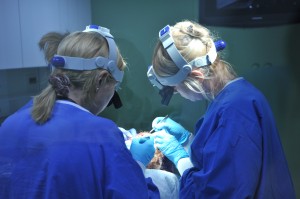 Hair transplants have been increasingly in the spotlight in recent years as more high-profile names have discussed their hair transplant experiences. However, some myths about hair transplants still prevail and these misconceptions about the surgery and post-surgery experience affect how hair transplants are understood.
Hair transplants have been increasingly in the spotlight in recent years as more high-profile names have discussed their hair transplant experiences. However, some myths about hair transplants still prevail and these misconceptions about the surgery and post-surgery experience affect how hair transplants are understood.
Here we debunk the most common myths about hair transplants:
1. A Hair Transplant Can Give you Back a Full Head of Hair
Contrary to popular belief, a hair transplant won’t give you back the full head of hair you once had. The point of a hair transplant is to restore the appearance of having a natural head of hair, and, in turn, restore the patient’s confidence. A good hair transplant will be natural looking and the post operative growth is slow which helps to make the effect as subtle as possible. Patients should not expect to achieve a full head of hair nor should they expect overnight results. It is 12 – 18 months before the final results of a hair transplant can be seen.
2. Hair Transplants are Painful
Another myth concerns the actual surgery. A Hair Transplant, when carried out correctly by an experienced and qualified team, should not be painful. Hair transplants are carried out under local anaesthetic and the patient is awake throughout and can watch TV and DVD’s and will have breaks for lunch and snacks throughout the day. On occasion a patient will be given over the counter non prescription pain killers after surgery but in most cases this is not necessary.
3. I Will be Covered in Bandages After the Surgery
You shouldn’t need tell-tale bandages after surgery. A patient will leave HRBR with a small stitch in the donor area which is easily covered by their own hair at the back. This stitch is removed 7-10 days after the transplant. Patients can usually go back to work after just a few days without anyone ever knowing they’ve had a hair transplant. Some well-known celebrities have even appeared on live television or in concert within a few days of surgery and no one has been the wiser.
4. I Hear There Are Scar Free Transplants Available
You cannot puncture the skin without leaving a scar, this is a fact as this is how all of our bodies are designed to heal. Contrary to some reports, Follicular Unit Extraction (FUE) is not a scar-free technique. Regardless of whether hair is transplanted individually or by a strip technique (FUT), punctured skin will always result in minor scarring. With FUE, fine stippled scars may become visible as hair thins in the donor area, particularly if large amounts of hair have been harvested by FUE from that area. The skill of a good hair transplant team will keep the scarring to a minimum.
5. You Should Wait Until you are Bald Before Getting a Hair Transplant
There are many theories about when is the best time to get a hair transplant. Some patients are under the impression that it is better to wait until you are almost completely bald before looking into hair restoration options. This is untrue. The correct time to start dealing with hair loss is when it becomes a concern to the patient. Medical treatment can help a patient retain their hair and in turn slow down the balding process for a time.
We discourage hair transplantation on men under 25 but a well-planned and designed transplant on a younger patient, for example a patient in their 30’s, will take into account their future hair loss pattern and the resulting hair transplant should remain completely natural looking throughout their life.
To learn more about hair transplants, read our article “Hair Transplants: What are they and who are they for?”
Find us on Facebook: https://www.facebook.com/HairRestorationBlackrock



